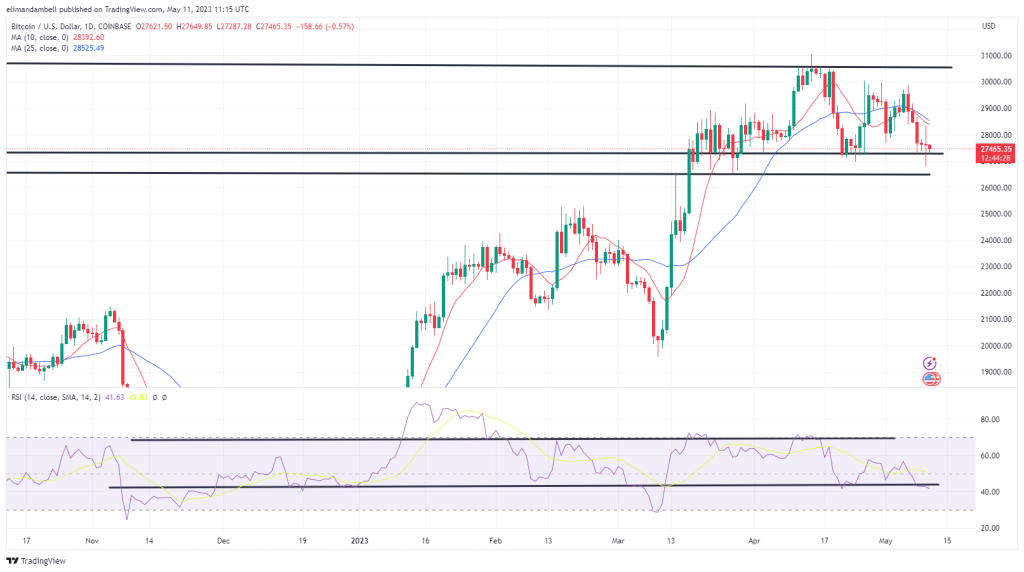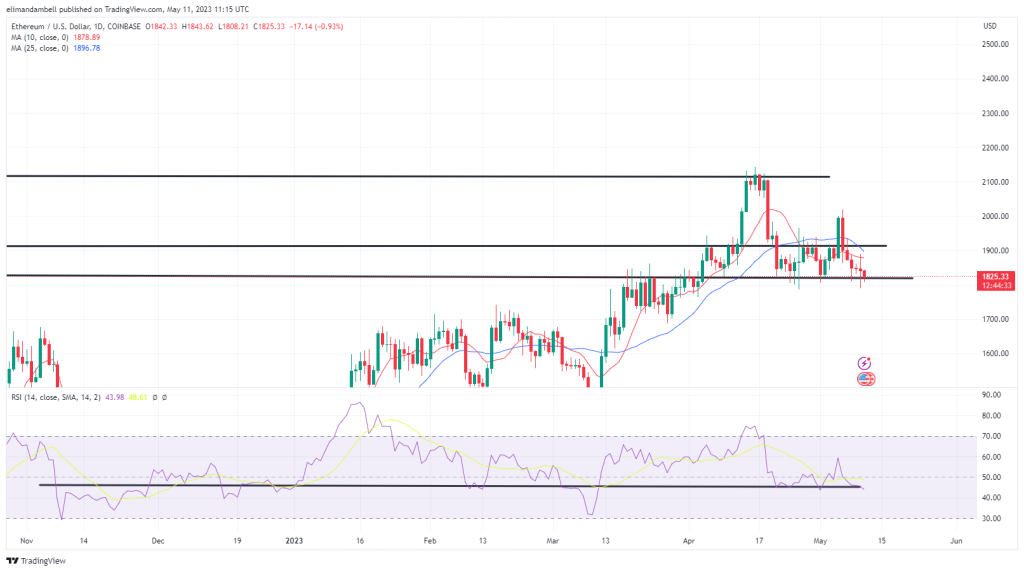
Ethereum fell below $1,800 in today’s session, as markets continued to react to the latest U.S. consumer price index. Inflation in the United States fell to 4.9% in April, less than the 5% sum many had expected. Bitcoin was also lower on the data, falling below $27,000.
Bitcoin
Bitcoin (BTC) briefly dropped below $27,000 late on Wednesday, as markets reacted to the latest U.S. inflation report.
After an earlier high of $28,322.69, BTC/USD slipped to an intraday low of $26,883.67 towards the close of yesterday’s session.
This move saw bitcoin drop to its weakest point since March 28, when price was at a low of $26,640.

Since this earlier decline in price, BTC has since rebounded, and is currently trading at $27,494.24.
From the chart, this appears to be due to the relative strength index (RSI), which is now tracking at 41.91, and close to reentering a floor at 43.00.
Should this occur, there is a strong possibility that the world’s largest cryptocurrency could be back above $28,000.
Ethereum
Additionally, ethereum (ETH) also fell to a multi-week low in today’s session, dropping below $1,800 in the process.
ETH/USD slipped to a bottom at $1,795.67 late on Wednesday, following an earlier peak of $1,886.80.
As a result of the sell-off, the cryptocurrency dropped to its lowest level since April 26, however price has since rebounded.

One of the catalysts for the sell-off was a breakout which took place on the RSI, which saw the index fall below 45.00.
At the time of writing, price strength is tracking at 43.93, with ethereum now trading at a price of $1,824.22.
It appears that a crossover between the 10-day (red), and 25-day (blue) moving averages will likely occur, and could signal a reversal in momentum.
Register your email here to get weekly price analysis updates sent to your inbox:
Could ethereum climb above $1,900 this week? Leave your thoughts in the comments below.
Image Credits: Shutterstock, Pixabay, Wiki Commons
Disclaimer: This article is for informational purposes only. It is not a direct offer or solicitation of an offer to buy or sell, or a recommendation or endorsement of any products, services, or companies. Bitcoin.com does not provide investment, tax, legal, or accounting advice. Neither the company nor the author is responsible, directly or indirectly, for any damage or loss caused or alleged to be caused by or in connection with the use of or reliance on any content, goods or services mentioned in this article.










